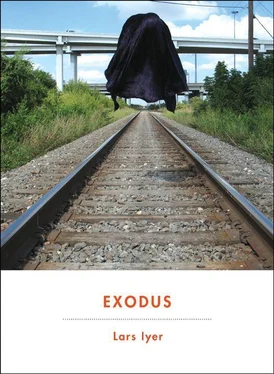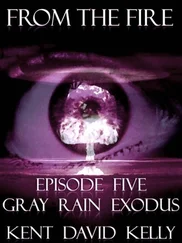Of course, it was really the futility of thinking that destroyed his collaborators, W. says. The lack of recognition. They expected their thought to be rewarded! They expected that the world would be interested in their Denkwegs , in their paths of thought. And when that didn’t come? They sought recognition through other means.
He faces the opposite problem with me, W. says. I’ve long since thrown my arms around futility. I’ve long since driven my Denkweg into the quagmire of the blogosphere. The opposite of recognition: that’s what I want, isn’t it? W. says. Public humiliation: that’s what I crave …
W. googles imbecile and then idiot . He googles enemy and betrayer . W. googles morbid obesity . He googles liposuction and gastric bands . And then W. googles my website. — ‘Let’s see what rubbish you’ve written today’.
Ah, my internet delusion, W. says. My blogospherical delusion. Didn’t I try to persuade him that the next great movement of thought would take place online, bypassing the conventional channels of thought? Didn’t I tell him of blogger-Lispectors of the future, of internet-Weils to come?
W. was actually persuaded, he says. Or some part of him was. He actually thought something was happening, that something might come of it. We started our group blog, didn’t we? he says. Our collective. — ‘And then what happened? Tell me. Start at the beginning’. A pause. ‘You ruined it! You destroyed it!’
He remembers it all, W. says. I wrote like a maniac. Post after post, one after another. No one else in the collective had a chance! No one could get a word in! Logorrhoea: is that what I had? Blogorrhoea ! I was a maniac of writing, W. says. I was a Rasputin of prose .
I wrote on the last wildernesses in the Home Counties. I wrote on life in the suburbs of the Thames Valley. I wrote on my beleaguered childhood. And I wrote of the damp invading my flat and of the rats beneath my flat. I wrote about the end of the world, without understanding that my writing was also part of the end of the world.
Occasionally, W. would put up one of his considered, reasonably-written posts, he says. Every now and then, after much thought, W. would put something up — a modest post, soberly written — supposing that, surrounded by my madness, his post might seem all the more reasonable. He thought his post might rise up, a calm island in a crazy ocean.
But that’s not what happened, is it? His post was swamped! Everything he wrote was drowned! It was Atlantis all over again. That’s when he learned that the internet was only a support network for my fantasies, W. says. That’s when he learned that the blogosphere was invented for people like me .
W. reads me a passage from one of Debord’s films:
It must be admitted that none of this is very clear. It is a completely typical drunken monologue, with its incomprehensible allusions and tiresome delivery .
With its vain phrases that do not await response and its overbearing explanations. And its silences .
‘That’s how you should preface everything you write’, W. says.
Greenwich, London. The boulevards of the Royal Naval College are wide and calm, and we wander them like aristocrats. This is where they’ll set up base after the revolution, we agree. This is where we’ll be tried and executed by the new revolutionary order … — ‘ It was all his fault! ’, W. will cry as they raise the blade of the guillotine above our necks. ‘ Him — blame him! ’ And our heads will shoot out thirty feet over the crowds …
Ah, what kind of revolutionaries would we make? W. says. Who would lead who to the scaffold? Would I be the Robespierre to his Danton, sending him to his death? Or would it be the other way round?
W. can see them now, meeting together for the last time, two old friends, soon to be estranged: Danton dishevelled as usual, half drunk as usual; and Robespierre in his sky-blue cloak, with his immaculately powdered wig, believing himself to embody the revolution, and defending the murder of sixteen thousand people under the guillotine.
‘ What of those among the dead who are innocent? ’, Danton asked his friend, in his basso profundo voice. — ‘ I suppose that a man of your moral principles would not think that anyone deserved punishment ’, said Robespierre. Danton’s reply was quick: ‘ And I suppose that you would be annoyed if no one did ’.
Robespierre rose and left, his cape sweeping about him. Danton wept bitter tears. He knew he was doomed, of course, W. says. He knew he’d be executed. But he wept not because he knew he would die, but because he had been betrayed.
‘ Without friends, no one would choose to live ’, Danton said to himself, quoting from Aristotle. And when Robespierre added his signature to the warrant for Danton’s arrest, Danton didn’t even try to escape, W. says. He didn’t try to leave France. He didn’t call on his admirers to save him. His spirit was broken, this indomitable man. His strength had been tried, and found wanting. Friendship can only bear so much, W. says, and pauses. Betrayal! cries W. Betrayal!
Is that how it will be, in the coming revolution? W. wonders. Will I buy a sky-blue cloak and powder my wig? Will I sign W.’s death warrant? I have something of the fanatic about me, W. says. I’m ready to serve a greater cause. To give myself to something I barely understand.
Conference evening, on Greenwich lawns.
How many speakers we’ve heard! How many ideas! Sometimes, we have to admit, we were bored. Sometimes, we fell to drawing monkey butlers in our notebooks. Sometimes, W. wrote an obscenity in big letters in my notebook, or I drew something depraved in his. But at other times, we were exhilarated, set on fire by thought. We felt caught in the updraft of someone else’s ideas. We felt flown like kites by the thoughts of others.
But now we’re tired, after our day. Our limbs feel heavy; our eyes are closing.
W. has always believed that there are certain thoughts which come to you only in exhaustion, only once you’ve reached the end of your strength.
Hasn’t he reached this point with his friends among the Essex postgraduates, time and time again? Haven’t he and his housemates discovered the secrets of the universe after drunken nights at the bar?
The trouble is that what exhaustion reveals it also keeps to itself, W. says. What could he and his friends remember the next day of what they had discussed? What, of the truth that seemed to dawn between them? What, of weary truth , of the truth of weariness ?
It’s different with me, of course, for whom exhaustion leads nowhere, W. says. What thoughts have ever come to him at the end of our nights of drinking? What has there ever been but formless horror and the kind of states only Edgar Allan Poe would know how to name?
We need to wake up, W. says. We need to revitalise ourselves. There’s only one thing for it!
Sometimes, you need to be among the postgraduates, we agree. Sometimes you need to feel them alongside you, full of life, full of brilliance.
It’s like swimming with dolphins, W. says. It’s like snorkelling through a shoal of fish. You feel tiny electrical shocks on your skin. Your hair feels as though it’s standing on end. Ah, what joy of brilliance they show! What fleetness of the mind!
Postgraduates are the angels of the academic world, we agree. They’re between worlds — mediators between the heaven of full-time lecturers and the netherworld of the undergraduate. They teach — they often take seminars — but they are not a real part of the teaching staff. They study, it is true, but they’re not entirely students, either.
Читать дальше












